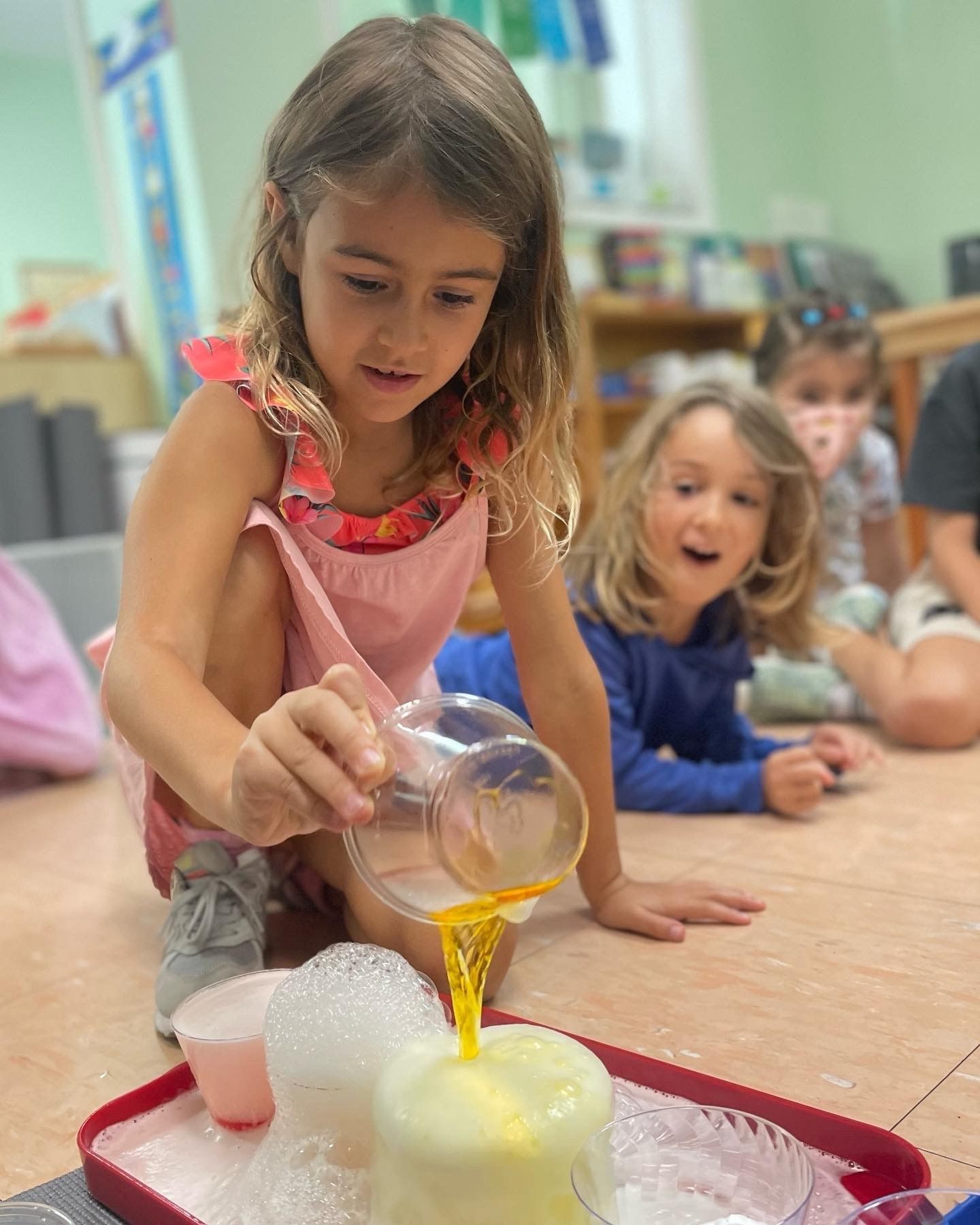Montessori FAQ
Wondering what Montessori is really all about? You're not alone.
Choosing a school is a big decision—and when it comes to Montessori, it often comes with thoughtful questions. What makes it different? How do children learn? Will it work for my child?
Frequently Asked Questions About Montessori Education
The Montessori method is a unique approach to learning that prioritizes independence, hands-on exploration, and respect for each child’s individual development. For families new to Montessori, this FAQ offers insight into the principles, practices, and purpose behind this time-tested philosophy.
-
What is Montessori education?
Montessori is a child-centered educational approach based on the philosophy of Dr. Maria Montessori. It emphasizes hands-on learning, independence, respect for a child’s natural development, and a carefully prepared environment that meets the needs of each individual learner.
-
How is Montessori different from traditional education?
In a traditional classroom, children often follow the same lesson at the same time, seated in rows with limited flexibility. In a Montessori environment, the approach is entirely child-centered. Children move freely through the classroom, choose their work from a range of developmentally appropriate options, and receive one-on-one or small group lessons from trained guides. The curriculum is hands-on, experiential, and deeply personalized—allowing each child to progress at their own pace while developing independence, focus, and a true love of learning.
-
Is Montessori just for preschoolers?
No! While Montessori is well known for its early childhood programs, the Montessori approach continues through elementary and even into adolescence. At Montessori School of Miami Shores, we serve children from 18 months through 11 years of age.
-
Do children have too much freedom in a Montessori classroom?
Montessori classrooms provide freedom within limits. Children are free to choose work that interests them—but within a structure that ensures they are progressing academically, socially, and emotionally. The environment is calm, respectful, and purposeful.
-
Will my child be prepared for a traditional school later on?
Yes. Montessori students are often praised for their independence, strong academic foundation, and ability to adapt to new settings. They typically transition well to other educational environments thanks to the confidence and critical thinking skills they’ve developed.
-
Why does Montessori have multi-age classrooms?
Multi-age classrooms afford us the luxury of adapting the curriculum to the individual child. Each child can work at his or her own pace while remaining in the community with his or her peers. In addition, the multi-age format allows all older children to be the leaders of the classroom community, even those children who may be shy or quiet.
-
Is Montessori good for all children?
Montessori is designed to help all children reach their fullest potential at their own unique pace. A classroom whose children have varying abilities is a community in which everyone learns from one another and everyone contributes. Moreover, multi-age grouping allows each child to find his or her own pace without feeling “ahead” or “behind” in relation to peers. As with any educational approach, the best fit depends on each child and family.
-
Is Montessori right for families of all beliefs?
Absolutely. One of the strengths of the Montessori approach is its foundation in respect—for the child, for others, and for the world we live in. Because Montessori is not affiliated with any religion, it creates space for families of all beliefs and traditions to feel a sense of belonging. Cultural studies, geography, and grace and courtesy lessons help children appreciate diversity and understand the beauty of different perspectives.
-
Montessori classrooms don’t look like regular classrooms.
The different arrangement of a Montessori classroom mirrors the Montessori method's differences from traditional education. Rather than putting the teacher at the focal point of the class, with children dependent on the lead guide for information and activity, the classroom shows a literally child-centered approach. Children work at tables or on floor mats where they can spread out their materials, and the teacher circulates about the room, giving lessons or resolving issues as they arise.
-
How do Montessori students stay motivated without grades or competition?
Montessori classrooms emphasize healthy, internal motivation. Children learn to challenge themselves through self-monitoring, self-correction, and personal goal setting—skills that foster focus, independence, and continuous growth.
Rather than competing for grades or rewards, students are encouraged to take pride in their own progress and efforts. As they grow, they engage in age-appropriate activities that include friendly competition—like spelling activities,, performances, or group projects—where doing your best and supporting others go hand in hand.
In Montessori, motivation is cultivated from within—and that’s a skill that lasts a lifetime.

